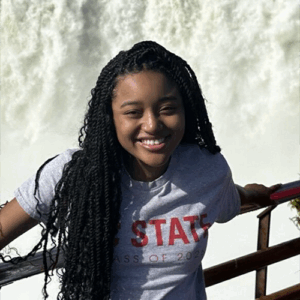Packways: Learning by Doing
Packways is a means of informing and involving more students in success opportunities we call high-impact experiences (HIEs).
Packways: Learning by Doing was selected as the university’s 2024-29 Quality Enhancement Plan (QEP) as part of NC State’s 2024 SACSCOC reaffirmation of accreditation process. This QEP, which focuses on high-impact experiences, is part of a universitywide project focused on enhancing student learning and success.
As part of Packways, NC State students will have access to high-impact experiences (HIEs), understand their value, and be guided in the practice of reflection to better integrate experiences across contexts for lifelong learning. Packways also brings together a community of practice that focuses on HIEs that prepare NC State students to serve North Carolina, the nation and world.
Participation in high-impact experiences (HIEs) has a proven impact on students’ critical thinking, career readiness, rate of engagement and self-actualization.
Packways Scavenger Hunt
The Packways Scavenger Hunt is your chance to discover NC State’s exciting high-impact experiences — internships, research, global experiences, service-learning and more.
92%
Of students feel like internships and field experiences helped them acquire job or work related skills
86%
Of students feel that their research experiences helped translate theory into practice
71%
Of employers felt much more likely to consider applicants who had a job or work study experience
What makes an experience ‘high-impact’?
HIEs at NC State are immersive and sustained opportunities for students to deepen and apply knowledge in and beyond the classroom. HIEs empower students, in collaboration with mentors and/or one another, to learn and grow through structured critical reflection, to make and communicate connections, and to assess and integrate goals across their collegiate experience. By equipping students with tools for lifelong learning, HIEs prepare our students to thrive in a dynamic and complex world.

High Impact Experiences are something you should do at least once throughout your four years in college, it is something that could change the trajectory of what you thought you were going to do.
– Erica Rice on her HIE experience
Business Administration with a Concentration in Marketing
Find your High-Impact Experience
Packways focuses on five types of student engagement through HIEs: early cohort, professional, scholarly, community and global.